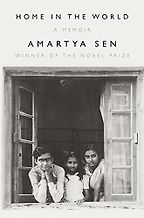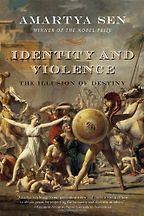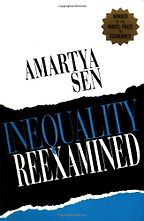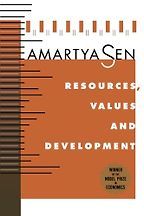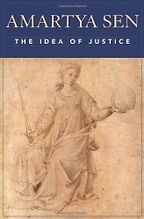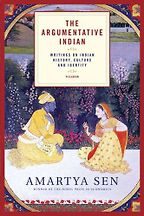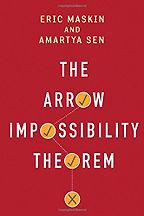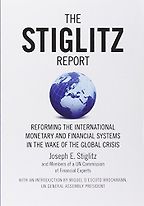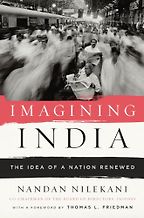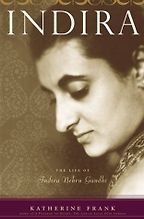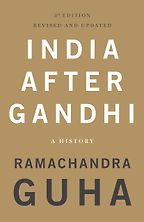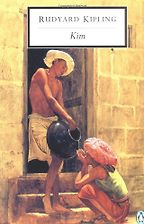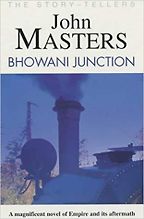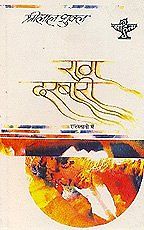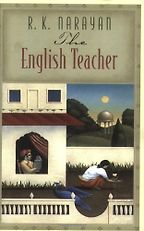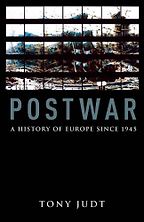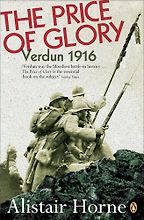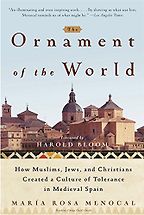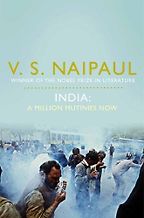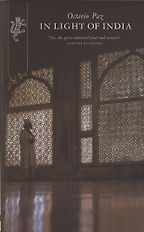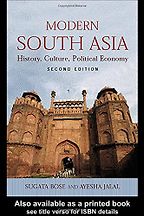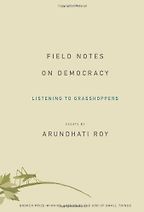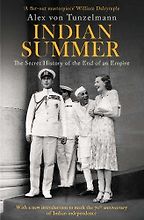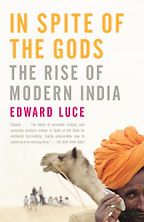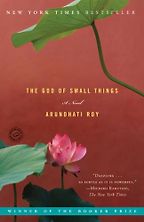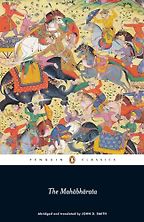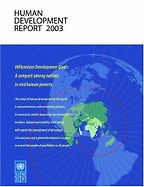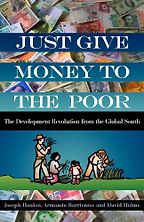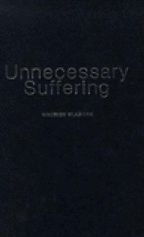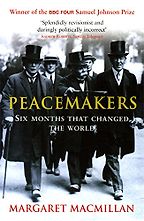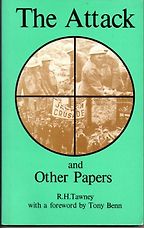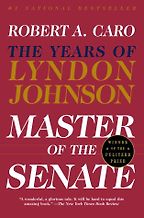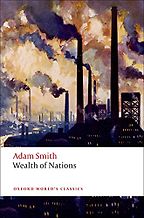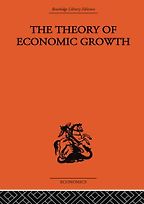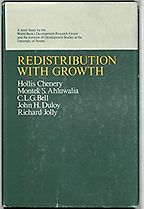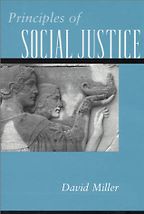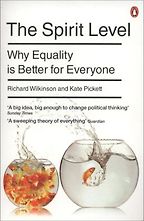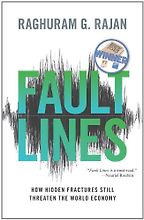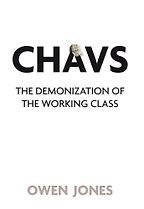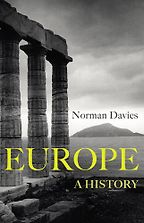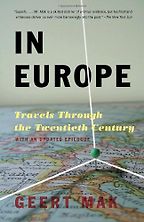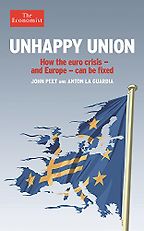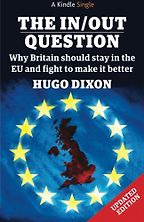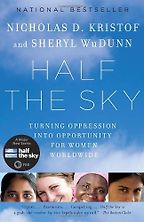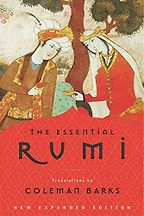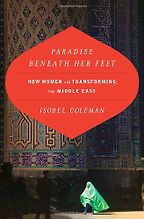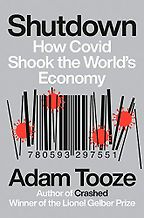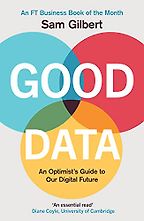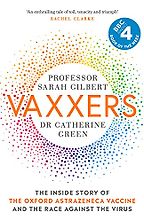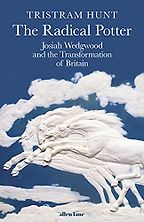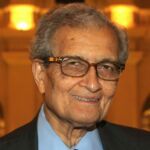
©Fronteiras do Pensamento
Books by Amartya Sen
Amartya Sen is an Indian philosopher and economist. He has taught at Harvard since 1987, and is widely known for his contribution to our understanding of famines. In 1998, he won the Nobel economics prize “for his contributions to welfare economics.” He is one of our most frequently recommended authors on Five Books.
“It’s beautifully written, a really good read. It’s all about his intellectual formation, growing up in Bengal in British India—which became part of Bangladesh—in a school established by Rabindranath Tagore and the philosophy of education that instilled in him.” Read more...
The Best Economics Books of 2021
Diane Coyle, Economist
“This book is an antidote to the nationalist backlash and the temptation, which we thought we had buried, to put people into nationalist boxes and say that nations are homogeneous and national identity is what uniquely defines us and sets us apart from others. Amartya Sen argues that that is an easy and extremely dangerous trap to fall into. Actually, we all have multiple overlapping identities — so that you can be both British, a Londoner, a husband, an Arsenal fan, a Christian, a liberal and so on. These rich overlapping identities are something to treasure…it’s a book everyone should read.” Read more...
Philippe Legrain, Political Commentator
“He puts on the table a much more tolerable statement than simply, ‘Everyone should be equal.’ No one believes that, because I can’t be equal to a brilliant musician or mathematician, or someone who can run the 100 metres in close to nine seconds. Those apologists are out there, but once you think about the whole basket of things that everyone needs you quickly get yourself into a fix. What works much better is to say that everybody has the right to live a life of value, and it is the job of all of us to create the institutions and processes that permit people to develop their capabilities wherever they are on the rungs of intellectual or physical capability. To have the opportunity, given what they’ve got, to develop themselves to be the best they can be…you can’t have freedom, Amartya says, if you can’t read and write.” Read more...
The best books on Fairness and Inequality
Will Hutton, Journalist
“Amartya Sen…got the Nobel Prize in development economics. There are many books by him in this area but I chose this one as representative of many of his ideas. It is a collection of the essays he has written over many years so it covers his various interests in this field. He also belongs to the tradition of paying attention to improving the access of the poor. He is very interested in the issues of equity. He also follows the Adam Smith tradition of economics in that he tries to bridge ethics and economics. For many years his appointments have been jointly in departments of economics and philosophy. In development economics, he looks at education and health improvements for the poor as well as women’s autonomy and the larger issues of democratic freedom being an integral part of development.” Read more...
The best books on Economic Development
Pranab Bardhan, Economist
“The Idea of Justice is a magical book, not just because of the unbelievable depth and breadth of everything he’s read, but also because of his generosity of spirit. He argues with people at their absolute best, expressing their ideas often better than they had formed them themselves and then disagreeing with them in a way that makes them think: ‘I got that wrong pretty well, actually.’ The book’s central idea is the importance of what he calls capability but I would call power, and that it is not just about money. In the past, the centre left has got lost in the cul-de-sac of this definition of equality being about money. Sen’s example disproving that is that of a disabled person who will need more money because of his disability. Power is about the ability to make decisions and choices in your life, about capability. He is brilliantly withering about democracy being a Western value, citing the example of Indian leaders Ashoka (304-232BC) and Akbar (1542-1605). The ancient history of democracy, he says, has even deeper roots in India than in Greece. This is about democracy as discussion as much as democracy at election.” Read more...
The best books on Power and Ideas
James Purnell, Politician
“The book does a tremendous job of giving you a sense of the many, many layers of history, of identities, that constitute this society. It goes back way into the past: it talks about medieval India, it talks about Islam in India, it talks about Buddhism, it talks about the Indian calendar. There’s an article on how India has many different calendars. Different people, different communities have had a very different sense of time. It really attests to the particular character of Indian society that it can accommodate within itself people living at very many different levels time-wise…The broad thesis that he offers is that there is a particular philosophical tradition – in fact not just one tradition but many traditions – in India that really stress the idea of discussion, of consensus-building through argumentation. He goes back to various philosophical discourses, various conversations that are part of Indian philosophy and part of Indian history, to stress this notion that the whole construction of what we now know as India, the modern nation state, the world’s largest democracy, isn’t something that’s just happened in the last 50 to 60 years.” Read more...
Pankaj Mishra, Political Commentator
The Arrow Impossibility Theorem
by Amartya Sen, Eric Maskin & Kenneth J Arrow
Two Nobel Prize-winning economics, Amartya Sen and Eric Maskin, give their take on Kenneth Arrow's 'impossibility theorem.'
Interviews where books by Amartya Sen were recommended
The best books on The Indian Economy, recommended by Kaushik Basu
Kaushik Basu, Professor of Economics at Cornell and former Chief Economist of the World Bank (2012-2016), says there’s a Gandhian way of evaluating society that takes account of both growth and inequality, and tells us why his job is an anthropologist’s dream come true. He picks the best books to understand India’s economy.
The best books on India, recommended by Mark Tully
The veteran journalist, who has lived in India for most of his life, talks about the country’s new-found self-confidence and recommends books to better understand its history and complexities
The best books on The End of The West, recommended by David Marquand
The former British MP says the myths we have perpetuated about the West are dangerous and need to be revised. He tells us what we should read to understand the changing world order
The best books on India, recommended by Pankaj Mishra
The world’s largest democracy isn’t something that has just materialised in the past 60 years, says the Indian essayist and novelist. He chooses books that illustrate India’s complex history and diverse society.
The best books on India, Ancient and Modern, recommended by William Dalrymple
The award-winning writer selects five books on India and says that the Mahabharata, eight times the length of the Bible, is one of the great works of literature of mankind – and every bit as good as it’s made out to be
-

1
UNICEF’s 2010 State of the World’s Children Report, Celebrating 20 Years of the Convention on the Rights of the Child
by UNICEF -

2
UNDP, The Human Development Report 2003
by UNDP -

3
The No-Nonsense Guide to the United Nations
by Maggie Black -

4
Just Give Money to the Poor
by Joseph Hanlon, Armando Barrientos and David Hulme -

5
The Idea of Justice
by Amartya Sen
The best books on Children and the Millennium Development Goals, recommended by Richard Jolly
The best books on Children and the Millennium Development Goals, recommended by Richard Jolly
The UN veteran chooses books on the fate of children in the developing world and the Millennium Goals and says giving money to the poor works
The best books on Power and Ideas, recommended by James Purnell
Labour politician, who was the Member of Parliament for Stalybridge and Hyde from 2001 to 2010, says power with no ideas is hollow and chooses his five books on political ideology
The best books on Economic Development, recommended by Pranab Bardhan
What is economic development? What does it take to make it happen? What can we learn from the days Britain was still a developing country? Eminent Indian economist, Pranab Bardhan, recommends the best books to better understand economic development.
-
1
Principles of Social Justice
by David Miller -

2
The Spirit Level: Why Greater Equality Makes Societies Stronger
by Richard Wilkinson and Kate Pickett -

3
Inequality Reexamined
by Amartya Sen -
4
Fault Lines: How Hidden Fractures Still Threaten The World Economy
by Raghuram G Rajan -

5
Chavs
by Owen Jones
The best books on Fairness and Inequality, recommended by Will Hutton
The best books on Fairness and Inequality, recommended by Will Hutton
What is the difference between fairness and equality? In contemporary capitalist societies, some inequality is inevitable and desirable. But the rewards for the few at the top have soared while the rest have been squeezed. Is this fair? We need a new social contract, says the author and columnist
The best books on Europe, recommended by Philippe Legrain
Europe should be run for all Europeans and not just the French and German banks, argues the author of European Spring, Philippe Legrain. He recommends the best books on Europe.
The best books on Women’s Empowerment, recommended by Zainab Salbi
Founder and CEO of Women for Women International Zainab Salbi says we need to make the 21st century the time for women’s rights, and describes how reading Rumi’s poems helps her to find inner peace
-

1
Home in the World: A Memoir
by Amartya Sen -

2
Shutdown: How Covid Shook the World's Economy
by Adam Tooze -

3
Good Data: An Optimist's Guide to Our Digital Future
by Sam Gilbert -

4
Vaxxers: The Inside Story of the Oxford AstraZeneca Vaccine and the Race Against the Virus
by Catherine Green & Sarah Gilbert -

5
Radical Potter
by Tristram Hunt
The Best Economics Books of 2021, recommended by Diane Coyle
The Best Economics Books of 2021, recommended by Diane Coyle
From the education of a Nobel Prize-winning economist to debates about privacy and the drawbacks of global supply chains, Professor Diane Coyle of Cambridge University’s Bennett Institute for Public Policy chooses the best economics books of 2021. These are highly readable books that also shed important light on the Covid pandemic and the world we live in.
